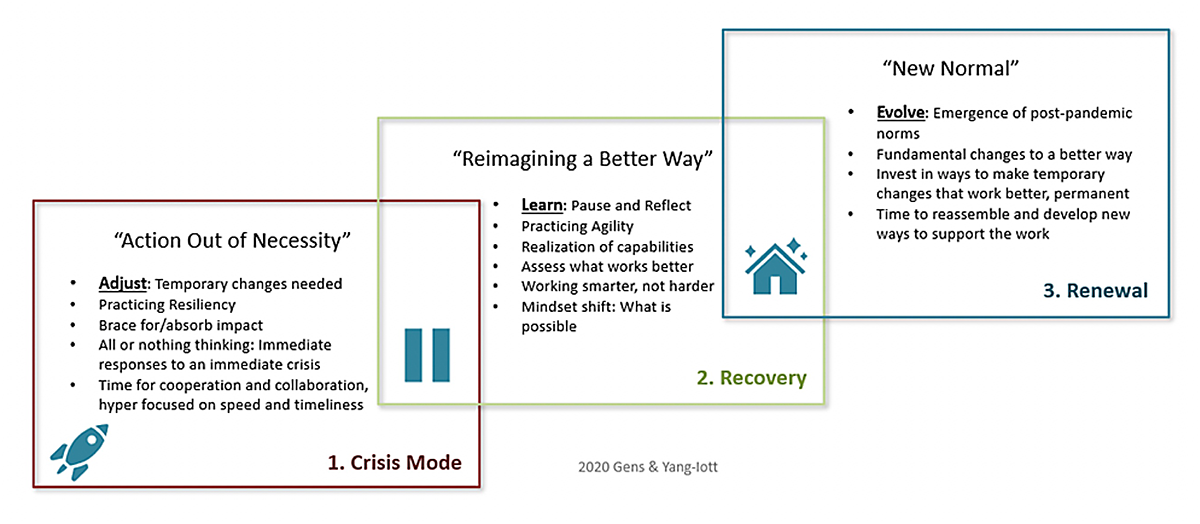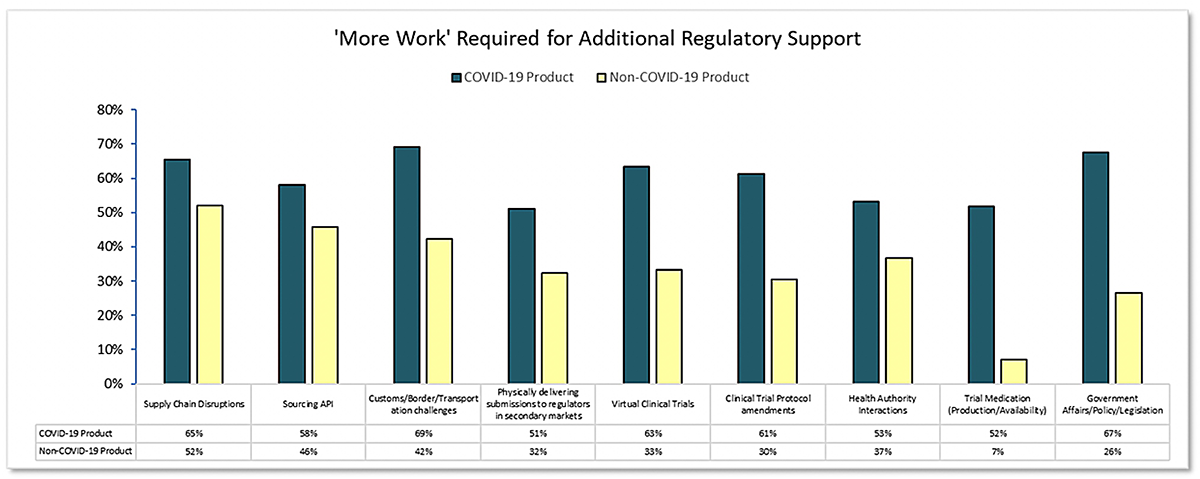Regulatory Organizations in a Pandemic World
By Katherine Yang-Iott
The COVID-19 Pandemic continues to make its global impact on Regulatory organizations. Since March 2020, the entire life sciences industry transformed in many ways to develop, produce, and deploy innovative treatments for this disease that has caused so much global destruction. Regulatory organizations played a major role each step of the way, ensuring the quality, confidence, and integrity of the products developed to combat the virus.
During this time, Gens & Associates produced our 36th study: the 2020 COVID-19 Pandemic Regulatory Impact Pulse report. Our pulse study measured the effects of the pandemic on regulatory organizations in 3 focused areas during the early fall of 2020.
We examined the impact of the pandemic on business operations, regulatory activities and on the regulatory workforce. Throughout our research, we observed how organizations were adapting during the start and height of the pandemic. As we extended our thinking into how these organizations would continue to evolve past the pandemic, we created a framework which includes 3 distinct phases on how organizations are evolving during the COVID-19 crisis.

Several themes focused on organizational resiliency and agility emerged within the study. Pandemic conditions have helped many organizations realize they were capable of doing things much faster and with more ease than they initially thought. The sudden, yet successful, shifts to adapt to a socially-distanced world encouraged many to be more open about entertaining other innovative possibilities and ideas for the future. This shift in mindset to ‘what is possible’ helped teams manage all the additional work required during the pandemic, especially for those working on a COVID-19 related product. In the graph below, you can see that study participants working on COVID-19 products had even more work required across all regulatory support areas that we measured. What the study observed was that even with all the additional work, along with the added pressures and constraints of an altered work environment, the work was still getting done. Faced with these challenges, organizations were able to find quicker paths without sacrificing quality, leading to a challenge of the status quo.

Additional factors for the levels of organizational resiliency can be contributed to all the technology advancements and system investments seen over the past 5-7 years. These advances and investments have been tracked in our bi-annual World Class RIM studies and they have made it possible, or at least easier, for many organizations to endure industry-wide challenges caused by the pandemic. Significant shifts in organizational behaviors were also starting to emerge. The longer the pandemic continues, the harder it becomes to justify the regulatory workforce returning to pre-pandemic ways of working. The study examines multiple growing organizational dilemmas such as companies continuing to support pandemic induced flexibilities post-pandemic and the effectiveness of remote work environments.
Ultimately, what we learned from the study participants was the pandemic created a perfect storm where regulatory organizations were put to the test and forced to meet challenges head on. Companies have been able to maintain stability and survive these tests with many shifting their mindset to ‘what is possible in a shorter timeframe’ after living through it and experiencing the possibilities first hand.
If you wish to learn more, you can access our full study report, findings and community debrief video here. Members of our community can also log in to the Executive Lounge to view the premier debrief session and full report. As always, we welcome your comments and any additional questions.
You can connect with us by emailing corporate@gens-associates.com.






